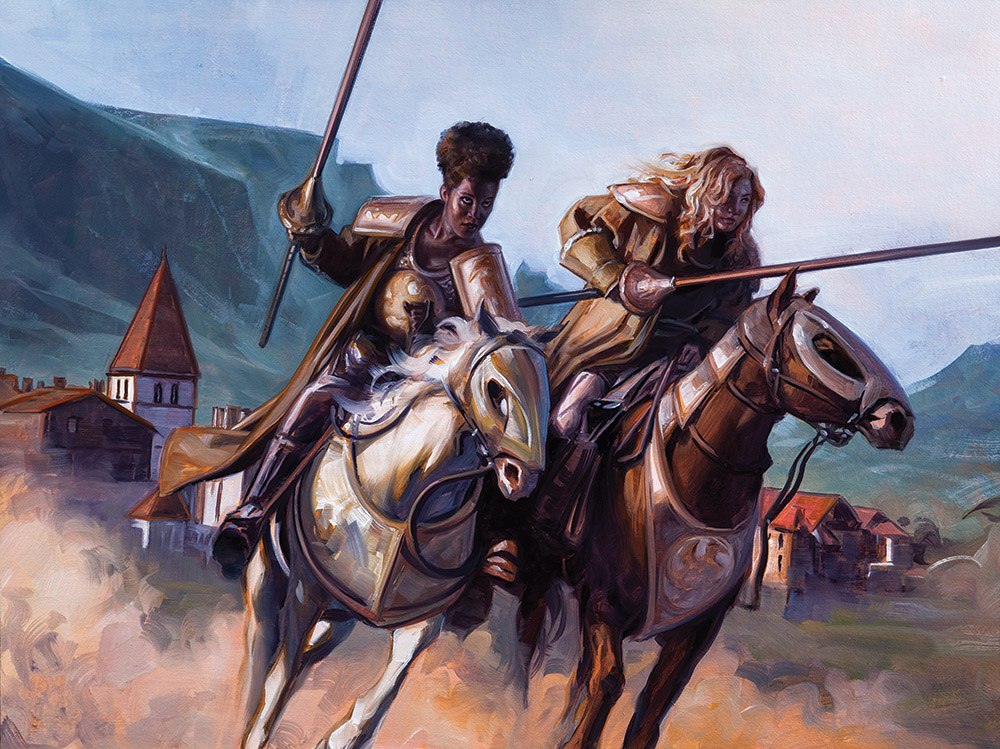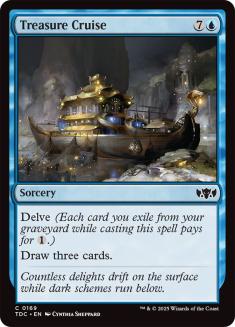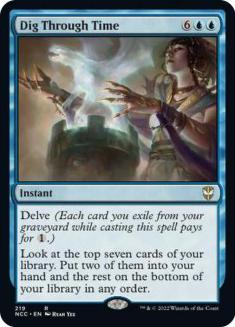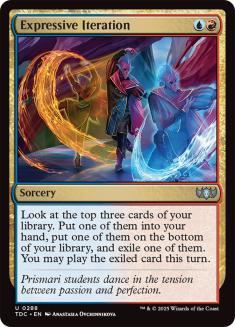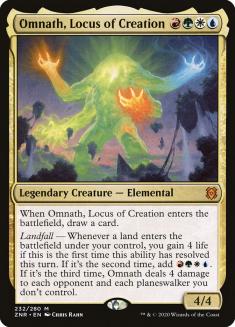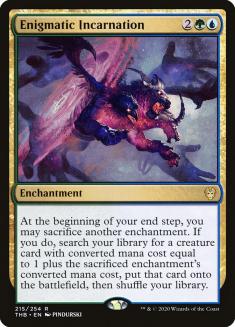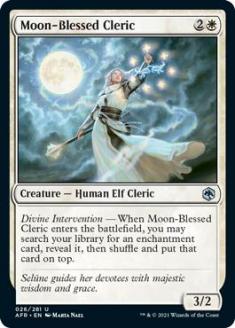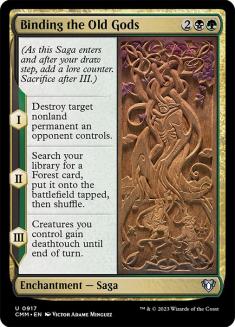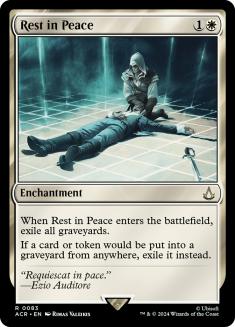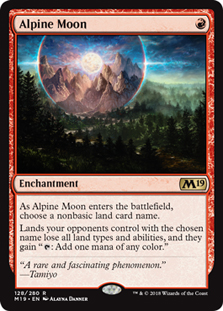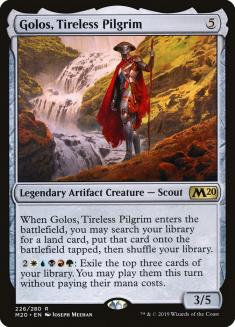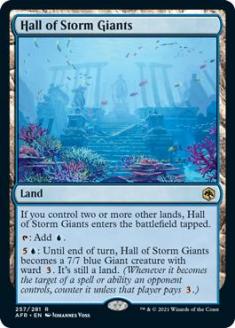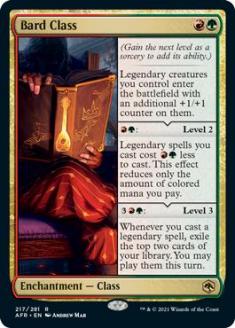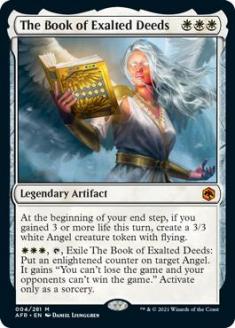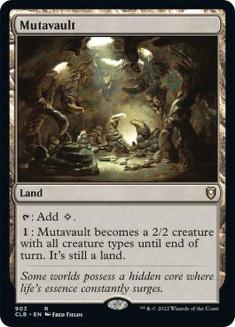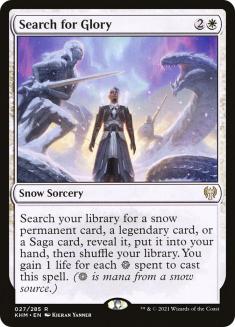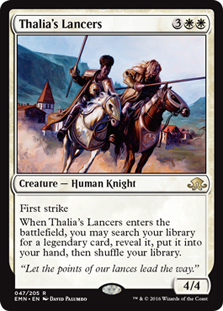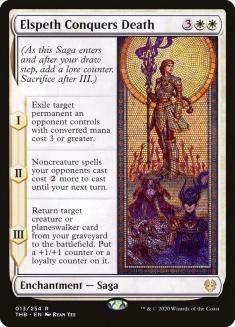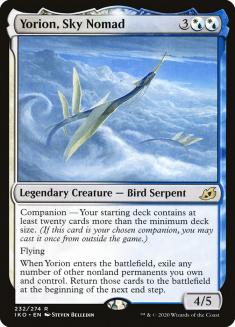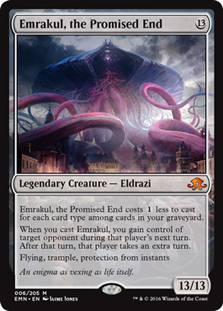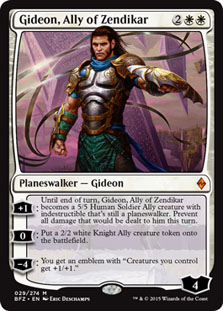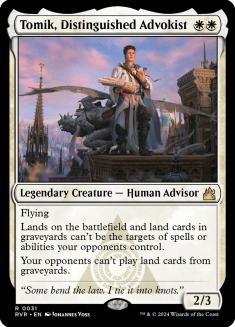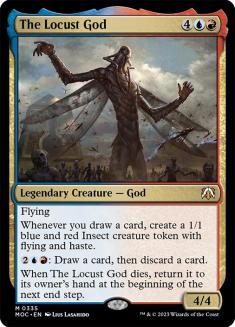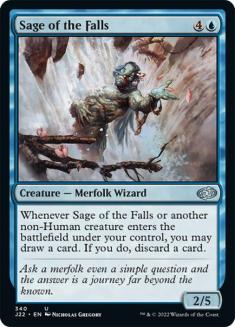Pioneer was dealt an awful hand.
It launched at the worst possible time, as Throne of Eldraine and subsequent sets flattened distinctions between formats with cards that dominated everywhere. When a truly unique deck in Dimir Inverter did emerge, it was allowed to throttle Pioneer for far too long, driving away players from a stagnant format, and the overdue ban alienated the small but influential minority of players who loved Inverter and the metagame surrounding it. The pandemic obliterated any momentum the format had and relegated it to Magic Online where many other formats vie for players’ attention. On MTG Arena, Historic was contrived as the default larger format and Pioneer hasn’t even had a chance to compete — Pioneer Masters is now officially just a vague long-term goal. The name ‘Pioneer’ became an easy joke about a zombie format that couldn’t even get the minimum number of players to fire an event.
Despite this uphill battle, Pioneer is in a much better place than its previous incarnations and most other formats right now. There are a lot of successful archetypes representing a wide range of playstyles. New sets tend to have a large and organic impact on Pioneer with no need for the earthquakes from Modern Horizons sets or the injection of random nonsense through the Historic Anthologies. There’s an impressive level of innovation for a format that only sees a tiny fraction of the play time and attention of its cousins.
If Pioneer and Historic switched platforms, I expect Pioneer would be seen as the refreshing alternative to Standard that Historic is meant to be, while Historic would be the one languishing in obscurity in a dark corner of Magic Online.
Before covering some brilliant recent innovations, we have to address an all too familiar elephant in the room:
Creatures (10)
Lands (20)
Spells (30)

Izzet Phoenix was the best deck in Modern. It’s now the best deck in Historic. It’s been the best deck in Pioneer for months.
The surprise isn’t that Arclight Phoenix took over another format, just that it took this long. When Pioneer was announced, Izzet Phoenix was the first deck on everyone’s mind — a recent Modern superstar in a fresh format where Treasure Cruise is legal! It failed to deliver on this initial hype, which is forgivable against the likes of Oko, Thief of Crowns and Field of the Dead but more puzzling as the worst offenders were removed and Izzet Phoenix was still nowhere to be seen. Over time, Izzet Phoenix became a cautionary tale for why success in one format didn’t automatically translate to others.
What changed? The main reason is that Pioneer is now definitively about contesting the battlefield. Trading off cards and then refuelling with Treasure Cruise or seizing the initiative with Arclight Phoenix is a relevant approach against almost every deck in the format but was a sideshow against Dimir Inverter or Lotus Breach. Pioneer also lacks the density of one-mana cantrips or card filtering that kept the Modern and Historic versions going. You need your cheap red removal like Lightning Axe or Wild Slash to be good cards in the format to have enough one-drops to return Arclight Phoenix consistently (and, when the format is creature-centric enough for this to be true, your other hallmark threat in Thing in the Ice becomes that much stronger).
Without even more recent and severe mistakes like Uro, Titan of Nature’s Wrath, the broken delve spells from Khans of Tarkir are predictably the most powerful cards left in Pioneer. Dig Through Time can take the credit for Dimir Inverter’s reign of terror and is still the best option for the likes of Dimir Control. Treasure Cruise is restricted in Vintage and banned everywhere else because of how easy it is to turn it into Ancestral Recall by doing things you wanted to do anyway. The Pioneer version of Izzet Phoenix lacks Faithless Looting and the strong incentives to play the deck that exist elsewhere, but this is the first chance that Arclight Phoenix and Treasure Cruise have had to wreak havoc together.
In this context, it’s no surprise that Expressive Iteration is excellent in Izzet Phoenix too. Iteration is top of the class at Strixhaven and quickly became the go-to card draw spell for Izzet decks across every format. It wants you to lower your curve so that a mid-game Iteration is likely to yield a spell you can immediately cast from exile. Izzet Phoenix has already done that work to support its namesake.
This package of Expressive Iteration + Treasure Cruise has brought another Khans favourite out of retirement thanks to Tristan Wylde-LaRue and the young Magic Online grinders:
Creatures (8)
Lands (26)
Spells (26)

Creatures (10)
Lands (26)
Spells (24)

Jeskai Ascendancy also seemed poised for a glorious return in the early days of Pioneer before promptly disappearing completely. Sylvan Caryatid and Sylvan Awakening have always been around as the ideal mana sources to untap repeatedly with Ascendancy, but Expressive Iteration fills an important gap as a setup card that can find your combo pieces or net cards when going off.
Creatures that attack on a different axis are a common enough sideboard pivot for combo decks that savvy players will often leave in some removal that’s dead against their opponent’s maindeck. Why not preempt that and just play a creature that attacks on every axis? Omnath isn’t making cards like Genesis Ultimatum far too easily accessible here. Instead, it’s letting you chain together Expressive Iteration and Treasure Cruise to piece together a big Ascendancy turn without ever running out of resources. If you do face something that shuts the combo down, Omnath can probably plow through it.
This deck is scary in part because those cards aren’t being played. Izzet Phoenix can’t interact with an enchantment permanently and maybe has one or two ways to bounce it for a turn; the rest of the format is barely better there. Until recently, this weakness to enchantments wasn’t something you had to care about in Pioneer. That may be about to change…
Creatures (15)
- 1 Sin Collector
- 1 The Scarab God
- 1 Knight of Autumn
- 1 Deputy of Detention
- 1 Fblthp, the Lost
- 1 Tolsimir, Friend to Wolves
- 1 Archon of Sun's Grace
- 1 Yorion, Sky Nomad
- 1 Skyclave Apparition
- 1 Glasspool Mimic
- 1 Elite Spellbinder
- 1 Callous Bloodmage
- 3 Moon-Blessed Cleric
Lands (33)
Spells (32)

Enigmatic Incarnation looks like the kind of delightful build-around card that’s great for blowing off steam in a League (and grabbing clout on Twitter if you 5-0) but it has proven to be a legitimate contender in Pioneer. Earlier lists would quickly run away with the game if they had Incarnation but couldn’t find that effect reliably in an 80-card deck and would be saddled with the situational one-ofs Incarnation encourages you to play. Moon-Blessed Cleric ensures more consistent access to your namesake card as well as Fires of Invention to set up the ridiculous Yorion, Sky Nomad turns that justify making the deck larger.
Moon-Blessed Cleric also gives you another toolbox for faster access to specific enchantments in matchups where they are what matters most, as well as indirect access to these cards via Enigmatic Incarnation.
It’s easy to miss this pair of one-ofs among these 95 cards but Golos, Tireless Pilgrim was a common Enigmatic Incarnation target for Michael Jacob as he streamed his Challenge run with this deck. Hall of Storm Giants is an excellent finisher and so is Golos now that it can find one. There’s fierce competition at the five-mana mark for this type of finisher in Pioneer but I expect to see this small Golos package in other midrange shells that aren’t already focused on other options like Niv-Mizzet Reborn.
Another flashy new enchantment is making noise in Pioneer:
Creatures (24)
- 4 Llanowar Elves
- 4 Burning-Tree Emissary
- 4 Elvish Mystic
- 2 Hazoret the Fervent
- 1 Rhonas the Indomitable
- 2 Questing Beast
- 2 Klothys, God of Destiny
- 2 Gallia of the Endless Dance
- 1 Radha, Heart of Keld
- 2 Targ Nar, Demon-Fang Gnoll
Planeswalkers (6)
Lands (20)
Spells (10)
Sideboard

Creatures (19)
- 3 Zurgo Bellstriker
- 1 Oviya Pashiri, Sage Lifecrafter
- 1 Rhonas the Indomitable
- 1 Grumgully, the Generous
- 1 Klothys, God of Destiny
- 4 Gallia of the Endless Dance
- 1 Radha, Heart of Keld
- 4 Birgi, God of Storytelling
- 3 Targ Nar, Demon-Fang Gnoll
Planeswalkers (9)
Lands (20)
Spells (12)

The strongest Class designs from Adventures in the Forgotten Realms pack tremendous power and flexibility into a single card. Ranger Class has made its mark in Standard as a cheap threat that later gives you an edge in combat and then becomes the kind of card advantage engine you would play by itself. In a larger format with enough cheap legends in the Gruul colours, Bard Class is the best of the bunch and worth building your whole deck around.
The Level 1 mode on Bard Class is already a worthwhile effect if you expect to cast multiple legends in a ‘fair’ game and the higher Levels let you do some truly unfair things. With a fully leveled Bard Class it’s trivial to cast most of your deck in one turn. The Gruul list by tunicoberno above has nineteen spells that can be cast for free and trigger the Level 3 mode to find more, and this rises to 35 if you have Birgi, God of Storytelling to make three-drops and your four-drop planeswalkers mana-neutral.
These legends inherently have severe diminishing returns in multiples — the first Gallia of the Endless Dance is a fine addition to the battlefield, while the second is another redraw with Bard Class at best or a dead draw at worst — so these lists have a wide spread of legends at spots on the mana curve where that’s possible.
Gruul Legends is a heavy favourite in any game where it draws and keeps a Bard Class but winning other games with a motley crew of legends that you wouldn’t play normally is much tougher. These two lists rise to the challenge in different ways; CLYDE THE GLIDE DREXLER runs the full eight Llanowar Elves + Elvish Mystic to ramp into its more expensive legends (following a successful template for Gruul Aggro in various forms in Pioneer) while tunicoberno doubles down on the legendary theme with cheap legends alongside Mox Amber to turbo-charge the Bard Class draws while adding a new subset of non-Class nut draws.
Creatures (28)
- 4 Metallic Mimic
- 4 Resplendent Angel
- 4 Bishop of Wings
- 4 Speaker of the Heavens
- 4 Skyclave Apparition
- 4 Youthful Valkyrie
- 4 Righteous Valkyrie
Lands (24)
Spells (8)

The Book of Exalted Deeds has already been burned in Best-of-One Standard 2022 for the combo with Faceless Haven. Mutavault does that much more efficiently and as early as Turn 4 in Pioneer while being a perfect card for any tribal aggro deck. Book itself is the ideal payoff card for Selesnya Angels, rewarding you for the lifegain and Angel tribal synergies you want to pursue anyway. These build-around Angels are less fragile than they seem in a format where three toughness gets you out of range of the most common red removal in Wild Slash and Magma Spray, while four toughness dodges the best red sweeper in Anger of the Gods.
Creatures (27)
- 4 Knight of the White Orchid
- 4 Thraben Inspector
- 1 Emrakul, the Promised End
- 1 Gisela, the Broken Blade
- 4 Thalia's Lancers
- 1 Lyra Dawnbringer
- 1 Tomik, Distinguished Advokist
- 4 Charming Prince
- 4 Skyclave Apparition
- 3 Priest of Ancient Lore
Planeswalkers (2)
Lands (35)
Spells (16)

This innovative deck from ManiacEngineer is hard to classify. It shares much of the scaffolding with the old Mono-White Devotion shells but Heliod is nowhere to be seen and there’s just a single copy of Nykthos, Shrine to Nyx as a tutor target. There are some lifegain synergies that you can lean into but these feel incidental. The deck is well-equipped for long grinds with the inevitability of Yorion, Sky Nomad but features a two-card combo that can lock up the game out of nowhere. There is a lot (perhaps too much) going on in this list but within that there’s a lot to like.
Search for Glory and Thalia’s Lancers give you access to even your one-ofs with a consistency that most 60-card decks can only envy. The seemingly random word salad on Search is almost tailor-made for this deck where one combo piece is snow, the other is a legend, and gaining life triggers The Book of Exalted Deeds while reducing the pain of taking a turn off to find a card in a faster matchup.
Refining this deck will involve slimming down these toolboxes but I want to highlight some of the most important targets. Elspeth Conquers Death and Yorion, Sky Nomad (which I’d want a copy of in the maindeck, especially with Thalia’s Lancers) let you out-grind Five-Color Niv-Mizzet or any deck with a similar plan, while Emrakul, the Promised End offers one of the greatest forms of inevitability in all of Magic. Gideon, Ally of Zendikar ends games by itself against unprepared opponents and was a common sideboard card for Mono-White Devotion. Tomik, Distinguished Advokist gives you a layer of protection for your combo while shutting down anyone trying to do the same (or untap a Lotus Field).
Creatures (2)
Planeswalkers (3)
Lands (33)
Spells (42)

A port of a successful Historic deck, this take on Indomitable Creativity uses it to assemble the combo of Sage of the Falls + The Locust God with one card rather than cheating out a single large creature like Velomachus Lorehold, which lacks good hits like Time Warp in Pioneer despite it being a ‘larger’ format. As a result, there’s no point warping the manabase around Dwarven Mine which can only create one Creativity target; instead, this list plays cards like Omen of the Sun; Elspeth, Sun’s Nemesis; and Secure the Wastes that each provide a pair of targets while contributing to a fair control game. Yorion, Sky Nomad adds a strong backup plan at the cost of diluting the main one; it’s unclear to me if that tradeoff is worth it here.
There’s no reason to play Pioneer right now if all you care about is playing in or qualifying for some random tournament. But if you want a varied format with lots of room left to explore, it’s hard to do better than Pioneer.

